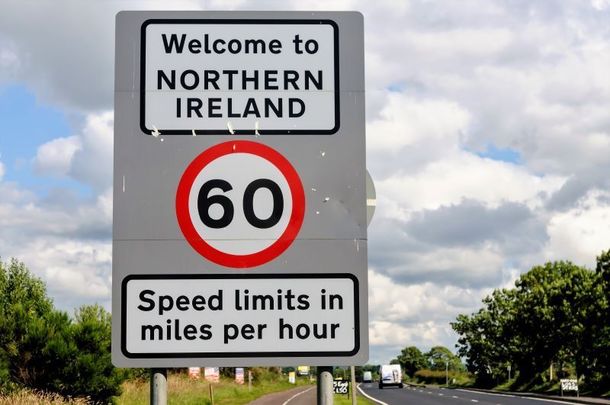The future is still an urgent problem in the North. Far too many young people don't see a life for themselves there.
A new study by the independent think tank Pivotal found that barely half of all young people (54.8%) see a good future ahead of them in Northern Ireland - and 41.8% say they plan to leave to find work or for further study elsewhere.
The statistics don't break down the way you may think they might, either - 46.7% of young Catholics and 37.1% of young Protestants spoke of their intention to leave - and among those who identify as “Other,” that is neither Catholic nor Protestant, a remarkable 58.8% said they plan to move.
?NEW Pivotal report - what do young people think about life, work and study in Northern Ireland? Our survey asked them for views on their communities, school, jobs and the future . Read the report here ?https://t.co/XFWzfBVqbT pic.twitter.com/gJheAlN7YC
— PivotalPPF (@PivotalPPF) June 19, 2023
Born after the signing of the Good Friday Agreement, young people queried in the latest opinion poll still saw the segregated shadow of the Troubles at work in their daily lives and haunting their futures.
Paramilitaries and drug gangs still had huge influence where they didn't have outright control of working-class Protestant areas, claimed some respondents.
Politicians were mostly focused on the big constitutional issues like maintaining the union with the UK and did little to address the widespread need for jobs, a more progressive society, better support for mental and emotional health, or creating career paths that actually lead to a sustainable future.
Having almost half the young people want to leave for a better future elsewhere is an indictment of the present that political parties have created for them, that much is clear. But is anyone in power actually listening?
Although young people consistently express a desire for a more welcoming and integrated society that's an obvious non-starter with a party like the DUP at the helm, whose Christian fundamentalist grassroots frequently oppose progressive values and movements like women's and LGBT rights.

Sir Jeffrey Donaldson, head of the DUP. (Getty Images)
Furthermore, they also adamantly oppose Irish language rights or public signage, or even immigrants moving into “traditionally Protestant Unionist Loyalist (PUL) areas,” with the unwelcome and potentially destabilizing demographic shifts that can accompany them.
Maintaining the union with the UK comes at a cost to the future of young people of all traditions. It's a zero-sum game that sidelines everything else including better job opportunities, more support for mental health, and greater efforts made to tackle paramilitary influence and drugs.
Conversely, most of the young people polled claimed they still cared about the constitutional question over the North's future themselves, but they also believed they are far more comfortable with community mixing than older generations and they want to see more religious integration in both education and housing.
The study found that paramilitaries continue to have an outsized impact on the lives of young people in the North, with 42.1% revealing that paramilitaries have an outsized influence over young people in their ow areas.
The proportion of paramilitary influence was much higher among young people from another (50%) or Protestant (43.9%) community background than compared with those from a Catholic background (37.2%). This suggests that control of the future is still being determined by the constitutional question in ways that blight the lives of the young they purport to serve.
Faith in their elders, and faith in their political leaders, is notably low. Only 10.5% of young people agreed that the politicians in Northern Ireland do a good job of representing the issues that matter to them, while an overwhelming majority, fully 92.4%, said that politicians should focus on building a positive future for everyone living in the North.
That internal contradiction, the desire for a more unified future amid parties that bluntly defy unification, may be closer to being resolved soon by demographics and history, but the square is far from circled in the PUL community itself.
How do achieve greater unity without unifying? How do you tackle sectarianism by keeping all others unlike you out? How do you promote integration whilst maintaining segregation? How do you establish a less sectarian future whilst keeping anyone unlike you out?
The unresolved paradox of the union, espousing an inclusive society whilst maintaining effective apartheid, is the key to its own slowly progressing demise.
Unfortunately the young there have no choice but to wait for the internal contradictions of that position to finally collapse. The rest are already voting with their feet.




Comments